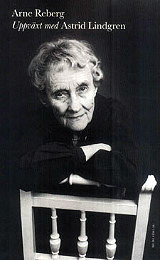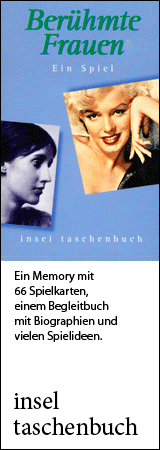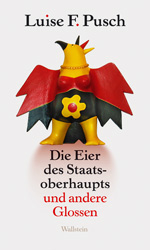
born on November 14, 1907 in Näs/Småland, Sweden
died on January 28, 2002 in Stockholm, Sweden
Swedish writer
Biography
Lindgren would have loved to swallow one of Pippi's green squiggle pills against growing up in order to prolong a childhood so wonderful that she felt a nostalgic yearning for it throughout her life. Although her parents demanded obedience and fulfillment of duties from all of their children (Astrid was the second of four), they were lovingly affectionate and in all other matters unusually permissive. Free of parental supervision, the Lindgren children were allowed to explore the unspoiled nature and to use their own imagination when playing outdoors. Many of her young protagonists – above all Pippi Longstocking, but also Ronia, Emil, and the children of Bullerbyn – mirror the freedom that Lindgren had enjoyed while growing up in Näs. She often said that she wrote for the child she had been, and in all probability, this is why her books continue to have such a strong impact on young readers across the world: she knew what children want and what they need. More importantly, she also knew exactly what they didn’t want.
Lindgren's idyllic childhood was followed by difficult years. She went to Stockholm to train as a secretary and earn her own living, renting a single furnished room that she shared with a friend. She had so little money and time that she initially had to place her first child, Lars, with foster parents. While working at the Royal Automobile Club, she met Sture Lindgren, married him in 1931, brought Lars back home, and then gave birth to her daughter Karin in 1934. In the years that followed, she was primarily a mother and housewife and spent wonderful summer months at her in-laws' house in Furusund, where she was later to write many chapters of her books.
It was as a result of a request from her daughter that she began writing. Karin, ill with pneumonia, demanded: “Tell me about Pippi Longstocking.” The child had just made up the name; her mother, just as spontaneously and inspired by the funny name her daughter had come up with, told her a story that she shortly thereafter put down on paper as a birthday present for Karin. She sent the manuscript to the Bonnier publishing house with a cover letter expressing the hope that “you won't alert the child welfare authorities.” The manuscript was rejected. But: “I was hungry for more. I just loved writing.” The following year, Lindgren submitted the book again – in a competition organized by the publisher Rabén and Sjögren. She won first prize.
Children loved Pippi, but adults feared she would set a bad example. Almost every new book was met with a similar response: children adored it, and educators railed against it. Ronia's rebellion against her own family caused as much offense as the unsuitable theme of death in The Brothers Lionheart, not to mention Emil's pranks in Lonneberga. But children wrote countless letters asking where Bullerbyn was, and Lindgren received many awards, including the Hans Christian Andersen Medal (called the “little Nobel Prize” for children's literature) and the Peace Prize of the German Book Trade.
Lindgren's husband died in 1952. She never remarried. While she enjoyed gathering her children and grandchildren around her at regular intervals, afterwards she was just as content to be on her own again. She traveled halfway around the world on numerous reading tours and was politically active against war, nuclear power plants, and high taxes – the latter when she was expected to pay taxes at a rate of 102%. Her protest was published as a satirical allegory (Pomperipossa in the World of Money) with the criticism voiced by the witch named Pomperipossa making a significant contribution to the defeat of the Social Democrats in the 1976 Swedish elections. However, it was the children of this world – patronized by adults and frightened by war – that remained Lindgren’s main concern throughout her life. Her own writing and her work as an editor in the children's book department at the publishing house Rabén & Sjögren set the standards for the books for young readers that deserve to be referred to as children's literature.
(Text from 2006; translated with DeepL.com; edited by Ramona Fararo, 2025.
Please consult the German version for additional information, pictures, sources, videos, and bibliography.)
Author: Mechthild Winkler-Jordan
Quotes
There is no other age during which you experience everything as intensely as in childhood. We grown-ups, who were once children ourselves, should remember what that was like. (Astrid Lindgren)
Yes, the most boundless of all childhood adventures was the adventure of reading. For me, it began when I got my first book and started to dip into it. At that moment, my hunger for reading was awakened, and life has never given me a better gift. (Astrid Lindgren)
A child, alone with his book, creates for himself, somewhere in the secret recesses of the soul, his own pictures which surpass all else. Such pictures are necessary for humanity. On the day that the children’s imagination no longer has the strength to create them, on that day humanity will be poorer. All great things that have happened in the world, happened first of all in someone’s imagination, and the aspect of the world of tomorrow depends largely on the extent of the power of imagination in those who are just now learning to read. (Astrid Lindgren)
Books need children's imagination, that is true. But it is even more true that children's imagination needs books in order to live and grow. There is nothing that can replace books as the root soil of imagination. (Astrid Lindgren)
If you hold the rights to one or more of the images on this page and object to its/their appearance here, please contact Fembio.



